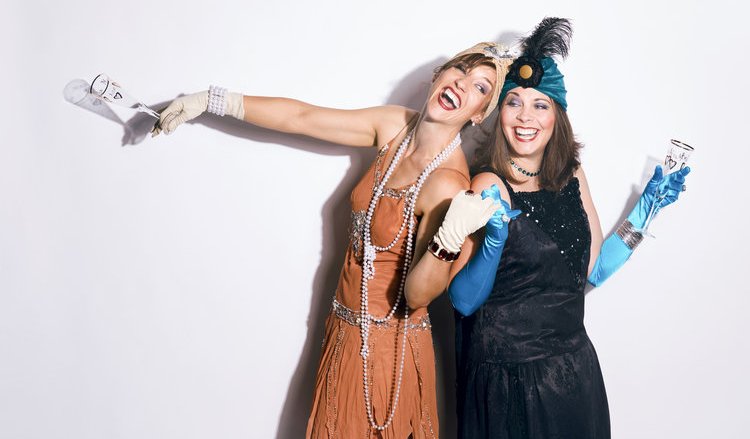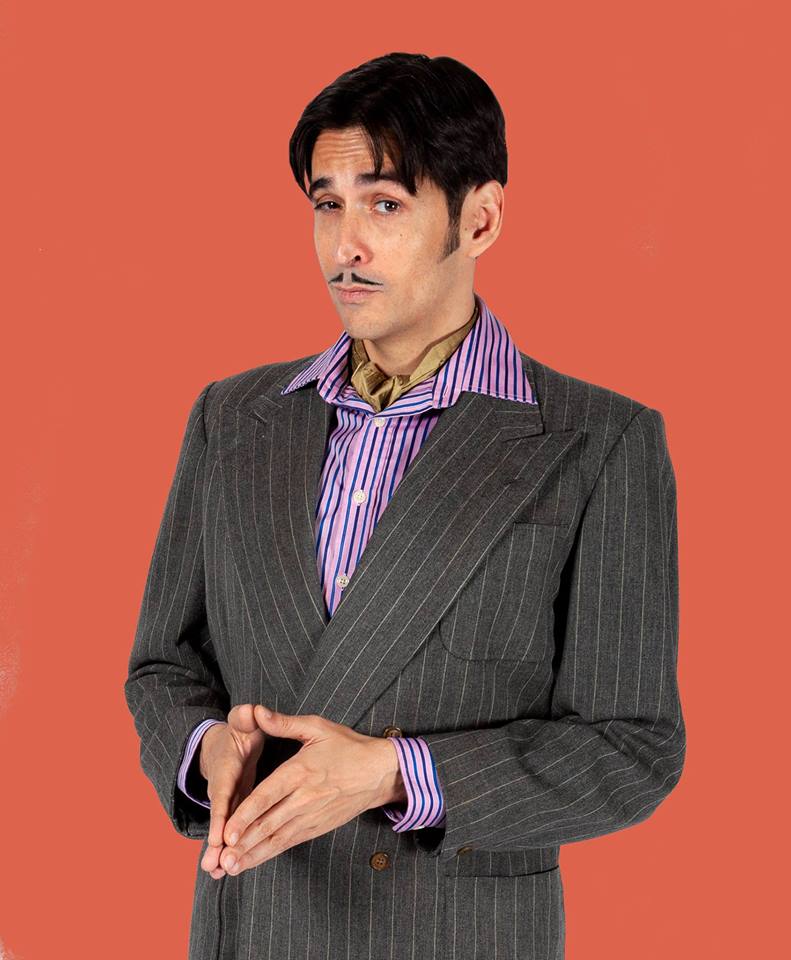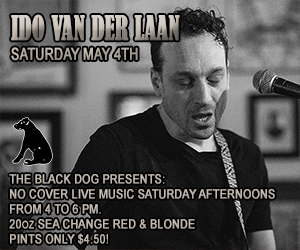FALLEN ANGELS: Varscona Farceurs Scandalize Citizenry with Lascivious Hijinks
Posted on November 24, 2018 By Colin MacLean Entertainment, Front Slider, Theatre
 Back in the Spring of 1925, that young theatrical turk Noel Coward was at it again. He wrote four plays that year – but the one that had the bluestocking brigade most up in arms was Fallen Angels. It featured two young wives, typical Coward creations, pampered, pretty and flighty, admitting to premarital sex – with a Frenchman at that. The discussion that followed set off learned arguments as to whether a pre-marriage liaison amounted to an act of infidelity. To make it worse, the two coquettes got into the cocktails in a protracted scene of intoxication to end the first act. Two women getting swacked. Tsk! Tsk!
Back in the Spring of 1925, that young theatrical turk Noel Coward was at it again. He wrote four plays that year – but the one that had the bluestocking brigade most up in arms was Fallen Angels. It featured two young wives, typical Coward creations, pampered, pretty and flighty, admitting to premarital sex – with a Frenchman at that. The discussion that followed set off learned arguments as to whether a pre-marriage liaison amounted to an act of infidelity. To make it worse, the two coquettes got into the cocktails in a protracted scene of intoxication to end the first act. Two women getting swacked. Tsk! Tsk!
No wonder the official government censor had to step in to protect the British theatre-going public, charging that the scene “would cause too great a scandal.” He cancelled the show. But a number of high profile actresses were hungrily eyeing the girls-behaving-badly career-making roles. Coward’s The Vortex, a lurid tale of sex and drug abuse among the rich, had become a big hit. So the Lord Chamberlain himself stepped in and sniffed, “I take the view that the whole thing is so much unreal farcical comedy, that subject to a few modifications in the dialogue, it can pass.”
Well, he was right about one thing, Fallen Angels is one of Coward’s lighter works – but it has shown great tenacity and remains one of his most produced plays. Probably that is due to the continuing fascination of generations of young actresses playing two free-spirited leads.
 Now when you have a stock company of experts in the art of playing Coward, and two such polished local performers as Belinda Cornish and Vanessa Sabourin, it was probably only a question of time before Fallen Angels would wooze their way across the stage at the Varscona Theatre. Running until Dec. 1, the show is a creation of Bright Young Things under the banner of the Varscona Theatre Ensemble.
Now when you have a stock company of experts in the art of playing Coward, and two such polished local performers as Belinda Cornish and Vanessa Sabourin, it was probably only a question of time before Fallen Angels would wooze their way across the stage at the Varscona Theatre. Running until Dec. 1, the show is a creation of Bright Young Things under the banner of the Varscona Theatre Ensemble.
Julia (Cornish) and Jane (Sabourin) are living lives of barely-repressed boredom being married to two stuffy men who take them for granted. Apparently in the British upper classes of the 1920s, after about five years of marriage passion disappears and couples settle for a “happy” life without all that furor and fervour in the bedroom.
“We are two wretchedly happy women,” they wail. The two become breathlessly excited when it appears that a dashing romantic figure who figured in both their pasts was about to turn up. The play develops around the ladies’ fevered preparations for the event by devising a series of delightfully wicked ploys. That leads to the famous scene where the pliable ladies tipple their way to bliss – comic and otherwise.
My, how these two actresses enjoy themselves. Cornish is cool and demure as always, and unwinds in a spectacular manner as the champagne and cocktails work. Sabourin is equally as couth but effectively plays it louder and brassier. The two bounce off each other as if they had spent a lifetime getting lit up regularly. There is a tendency for the act to go on a bit. After all, we’ve seen unending drunk (and attendant epic hangover) scenes in the movies recently, and it is a bit of a one-joke thing, but between Marianne Copithorne’s controlled but creative direction and the inventive comic smarts of her two leads, the whole scene just gets funnier.
Of course, Cornish and Sabourin are not alone on stage. Coward has backed them with a cast of familiar but hardy British supporting players such as the maid, Saunders. In his original Coward wrote the part as a functionary who comes in and out with canapes. Recognizing he had comic gold there, he re-wrote the whole show and turned Saunders into that well-known character, the comic all-knowing maid who is always besting her betters with snappy bits of back chat and killer reactions. The part may not have been written for the Varscona’s Rachel Bowron but she certainly makes it her own and is hilarious throughout. The company’s multi-character wiz, Mark Meer (above), mines all the French performers from Chevalier to Cluzot as Maurice the oh-so-smooth French lover. Nathan Cuckow and John Ullyatt are the apogee of splenetic outrage as the (maybe) cuckolded husbands.
As usual in Coward there is a lot more going on than just an epic bender. Beyond the comic antics you can detect a whisper of comment on the hypocrisy of men toward any hint of sexual adventure in their wives. Also, while the Master’s craft may also be hidden behind the hijinks, there is no doubt of his keen eye for behavioural detail, and the ability to build a comic situation. And if Fallen Angels is one of his lesser works you’d certainly not guess it from the yeoman work this … ah, well-oiled cast delivers.













